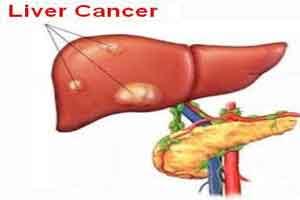- Home
- Editorial
- News
- Practice Guidelines
- Anesthesiology Guidelines
- Cancer Guidelines
- Cardiac Sciences Guidelines
- Critical Care Guidelines
- Dentistry Guidelines
- Dermatology Guidelines
- Diabetes and Endo Guidelines
- Diagnostics Guidelines
- ENT Guidelines
- Featured Practice Guidelines
- Gastroenterology Guidelines
- Geriatrics Guidelines
- Medicine Guidelines
- Nephrology Guidelines
- Neurosciences Guidelines
- Obs and Gynae Guidelines
- Ophthalmology Guidelines
- Orthopaedics Guidelines
- Paediatrics Guidelines
- Psychiatry Guidelines
- Pulmonology Guidelines
- Radiology Guidelines
- Surgery Guidelines
- Urology Guidelines
Nivolumab shows long-term survival in severe liver cancer patients: Study

Results from the Check Mate 040 study presented found that nivolumab, an immuno-oncology drug which acts by modulating the immune system, produces durable responses with long-term survival rates, regardless of whether or not patients were infected with Hepatitis B or C.
Amsterdam : Interim results from the study, presented at The International Liver Congress™ 2017 in Amsterdam, The Netherlands, showed that the overall objective response rate (ORR) by blinded independent central review (BICR) was 14.5% and ORR by investigator assessment was 19.3% in sorafenib-experienced patients in the dose expansion phase of Check Mate 040. Responsesby BICR were ongoing in 71.4% (15/21) of patients, and the 12-month overall survival rate in this cohort was 59.9%. The safety profile of nivolumab was manageable and consistent with that reported in other tumour types.
Liver cancer, or hepatocellular carcinoma (HCC), is the second most common cause of cancer-related deaths worldwide. The prognosis for patients with advanced liver cancer is poor, and the multi kinase inhibitor, sorafenib, is the only approved systemic treatment. If the patient is not tolerant or has contraindications for sorafenib therapy, there is currently no standard of care and therefore patients lack effective treatment options. Nivolumab has already increased survival time in different types of cancers, and has become an important treatment option for certain types of kidney, blood, melanoma and non-small cell lung cancer. Preliminary results from the Check Mate 040 study presented earlier this year suggested that nivolumab could be an option for the treatment of liver cancer. Nivolumab is not yet licensed for HCC in the EU.
"The durable responses and survival rates that were achieved with nivolumab are very welcome, especially as the side effects were manageable," said Prof Bruno Sangro, Head of Liver Unit, Clinica Universidad de Navarra and CIBEREHD, and study author. "These data support the potential of nivolumab in the treatment and stabilisation of advanced liver cancer in those patients who have progressed on sorafenib, with or without chronic viral hepatitis."
The Check Mate 040 study is a Phase 1/2, multi-cohort, open-label study of nivolumab conducted in patients with advanced liver cancer who were not suitable for surgery. The primary endpoint of the study was ORR by blinded, independent central review. All 145 patients previously treated with sorafenib in the dose-expansion portion of the study were given intravenous nivolumab 3 mg/kg every 2 weeks until the cancer progressed or side effects became intolerable.
Of the 145 patients who had previously received sorafenib, 132 (91.0%) had progression of their cancer and 12 (8.3%) were intolerant of the therapy. The median follow up was 12.9 months in this interim analysis of the dose expansion phase. The median duration of response (DOR) was not yet reached, and 8/21 responders had a DOR of greater than 12 months. The overall median overall survival (OS) rate was 16.7 months, and it was not reached in those with chronic viral hepatitis B and C. Responses to nivolumab occurred regardless of programmed death-1 (PD-1) ligand expression on tumour cells. Overall, grade 3/4 treatment-related adverse events occurred in 16.6% of patients.
Nivolumab is a programmed-death-1 (PD-1) immune checkpoint inhibitor that is designed to use the body's own immune system to help restore the anti-cancer immune response. It restores T-cell-mediated anti-tumour activity so that the T cells recognise and attack cancer cells.
"The reported median survival of 16.7 months in patients previously treated with sorafenib is promising and it encourages the evaluation of nivolumab in patients affected with hepatocellular carcinoma," said Prof Alejandro Forner, BCLC group, Liver Unit, Hospital Clinic Barcelona, Spain and member of the EASL Governing Board.

Disclaimer: This site is primarily intended for healthcare professionals. Any content/information on this website does not replace the advice of medical and/or health professionals and should not be construed as medical/diagnostic advice/endorsement or prescription. Use of this site is subject to our terms of use, privacy policy, advertisement policy. © 2020 Minerva Medical Treatment Pvt Ltd